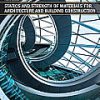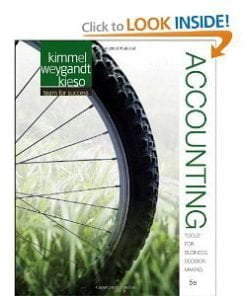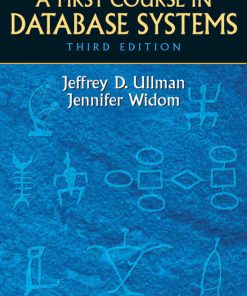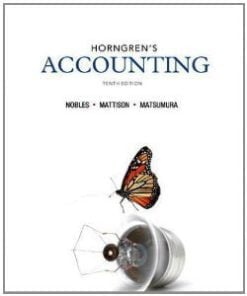Solution Manual for Fundamentals of Hydraulic Engineering Systems 4th Edition by Houghtalen
$35.00 Original price was: $35.00.$26.50Current price is: $26.50.
Solution Manual for Fundamentals of Hydraulic Engineering Systems 4th Edition by Houghtalen
Instant download Solution Manual for Fundamentals of Hydraulic Engineering Systems 4th Edition by Houghtalen pdf docx epub after payment.
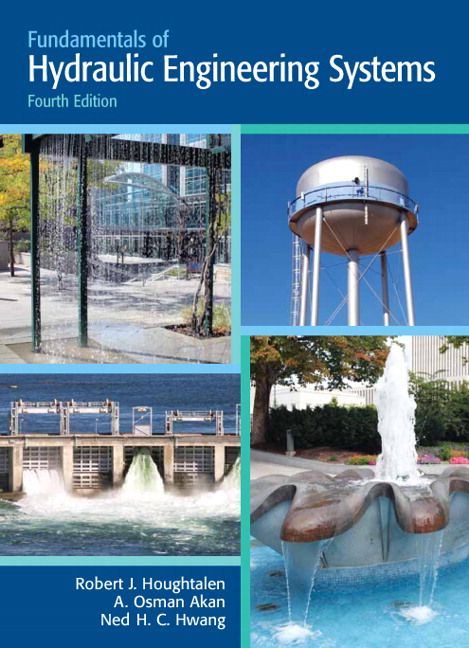
Product details:
- ISBN-10 : 0136016383
- ISBN-13 : 978-0136016380
- Author: Robert J. Houghtalen (Author), A. Osman Akan (Author), Ned H. C. Hwang
Fundamentals of Hydraulic Engineering Systems, Fourth Edition is a very useful reference for practicing engineers who want to review basic principles and their applications in hydraulic engineering systems. This fundamental treatment of engineering hydraulics balances theory with practical design solutions to common engineering problems. The author examines the most common topics in hydraulics, including hydrostatics, pipe flow, pipelines, pipe networks, pumps, open channel flow, hydraulic structures, water measurement devices, and hydraulic similitude and model studies. Chapters dedicated to groundwater, deterministic hydrology, and statistical hydrology make this text ideal for courses designed to cover hydraulics and hydrology in one semester.
Table of contents:
Preface
ix
Acknowledgments
xiii
Introduction
xix
Fundamental Properties of Water
1(13)
The Earth’s Atmosphere and Atmospheric Pressure
2(1)
The Three Phases of Water
2(1)
Mass (Density) and Weight (Specific Weight)
3(2)
Viscosity of Water
5(2)
Surface Tension and Capillarity
7(1)
Elasticity of Water
8(1)
Forces in a Fluid Field
9(5)
Problems
10(4)
Water Pressure and Pressure Forces
14(37)
The Free Surface of Water
14(1)
Absolute and Gauge Pressures
14(3)
Surfaces of Equal Pressure
17(1)
Manometers
18(4)
Hydrostatic Forces on Flat Surfaces
22(5)
Hydrostatic Forces on Curved Surfaces
27(3)
Buoyancy
30(1)
Flotation Stability
31(20)
Problems
35(16)
Water Flow in Pipes
51(37)
Description of Pipe Flow
51(1)
The Reynolds Number
52(2)
Forces in Pipe Flow
54(2)
Energy in Pipe Flow
56(4)
Loss of Head from Pipe Friction
60(7)
Friction Factor for Laminar Flow
60(2)
Friction Factor for Turbulent Flow
62(5)
Empirical Equations for Friction Head Loss
67(3)
Friction Head Loss-Discharge Relationships
70(1)
Loss of Head in Pipe Contractions
71(2)
Loss of Head in Pipe Expansions
73(2)
Loss of Head in Pipe Bends
75(1)
Loss of Head in Pipe Valves
76(4)
Method of Equivalent Pipes
80(8)
Pipes in Series
80(1)
Pipes in Parallel
81(2)
Problems
83(5)
Pipelines and Pipe Networks
88(55)
Pipelines Connecting Two Reservoirs
88(4)
Negative Pressure Scenarios (Pipelines and Pumps)
92(5)
Branching Pipe Systems
97(7)
Pipe Networks
104(15)
The Hardy-Cross Method
105(11)
The Newton Method
116(3)
Water Hammer Phenomenon in Pipelines
119(8)
Surge Tanks
127(16)
Problems
130(13)
Water Pumps
143(41)
Centrifugal (Radial Flow) Pumps
143(6)
Propeller (Axial Flow) Pumps
149(3)
Jet (Mixed-Flow) Pumps
152(1)
Centrifugal Pump Characteristic Curves
153(1)
Single Pump and Pipeline Analysis
154(3)
Pumps in Parallel or in Series
157(4)
Pumps and Branching Pipes
161(3)
Pumps and Pipe Networks
164(1)
Cavitation in Water Pumps
165(4)
Specific Speed and Pump Similarity
169(2)
Selection of a Pump
171(13)
Problems
175(9)
Water Flow in Open Channels
184(48)
Open-Channel Flow Classifications
186(2)
Uniform Flow in Open Channels
188(6)
Hydraulic Efficiency of Open-Channel Sections
194(3)
Energy Principles in Open-Channel Flow
197(6)
Hydraulic Jumps
203(3)
Gradually Varied Flow
206(2)
Classifications of Gradually Varied Flow
208(3)
Computation of Water Surface Profiles
211(10)
Standard Step Method
212(2)
Direct Step Method
214(7)
Hydraulic Design of Open Channels
221(11)
Unlined Channels
223(2)
Rigid Boundary Channels
225(1)
Problems
226(6)
Groundwater Hydraulics
232(49)
Movement of Groundwater
234(3)
Steady Radial Flow to a Well
237(5)
Steady Radial Flow in Confined Aquifers
238(2)
Steady Radial Flow in Unconfined Aquifers
240(2)
Unsteady Radial Flow to a Well
242(6)
Unsteady Radial Flow in Confined Aquifers
242(3)
Unsteady Radial Flow in Unconfmed Aquifers
245(3)
Field Determination of Aquifer Characteristics
248(8)
Equilibrium Test in Confined Aquifers
248(2)
Equilibrium Test in Unconfined Aquifers
250(2)
Nonequilibrium Test
252(4)
Aquifer Boundaries
256(5)
Surface Investigations of Groundwater
261(2)
The Electrical Resistivity Method
261(1)
Seismic Wave Propagation Methods
262(1)
Seawater Intrusion in Coastal Areas
263(4)
Seepage Through Dam Foundations
267(3)
Seepage Through Earth Dams
270(11)
Problems
271(10)
Hydraulic Structures
281(40)
Functions of Hydraulic Structures
281(1)
Dams: Functions and Classifications
282(2)
Stability of Gravity and Arch Dams
284(5)
Gravity Dams
284(4)
Arch Dams
288(1)
Small Earth Dams
289(2)
Weirs
291(5)
Overflow Spillways
296(3)
Side-Channel Spillways
299(3)
Siphon Spillways
302(3)
Culverts
305(5)
Stilling Basins
310(11)
Problems
People also search:
Fundamentals of Hydraulic Engineering Systems 4th Edition
Fundamentals of Hydraulic Engineering Systems 4th Edition pdf
Fundamentals of Hydraulic Engineering Systems
basic principles of hydraulic systems
|
basic components of a hydraulic system
|
why is hydraulic engineering important
Related products
Solution Manual
Solution Manual
Solution manual for Accounting: Tools for Business Decision Making Kimmel Weygandt Kieso 5th Edition
Solution Manual
International Accounting Doupnik 4th Edition Solutions Manual
Solution Manual
Solution Manual
International Business Competing in the Global Marketplace Hill 10th Edition Solutions Manual


